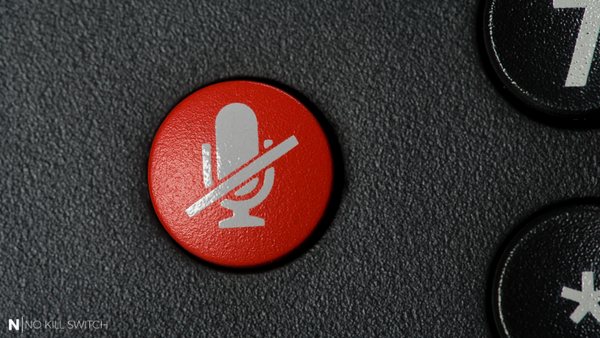I've used many personality assessment methods & tools in the past. Gallup SF, Transactional Analysis, OCEAN - that sort of stuff (& more). I'm not a professional behavioral psychologist (of course), but I thought nothing would surprise me regarding the qualification of personality types. Yet, I've recently (in the last few months) learned a new word - one I was missing without knowing it.
Someone called me "intense".
What is an "intense" personality? Here's what I've found in the Cambridge Dictionary:
"A person who is intense is very forceful and has strong emotions and opinions."
That is not a bad description, but it certainly needs more details. I've tried browsing some psychology sites, but I didn't find anything significantly better. There's no other option: I'll try to coin one myself.
An intense person ...
- ... is very focused - and not, it's not about this-moment-attention, but the general fixation on some set goal (think: Tommy Lee Jones in "The Fugitive"); It's the "straight-to-the-point" kind of focus.
- ... has strong opinions - (s)he is passionate & vocal about what (s)he finds important - sometimes these opinions are considered more radical than the average, which is most likely rhetoric used to emphasize the emphasis, hehe.
- ... doesn't get discouraged easily - expresses a lot of tenacity & perseverance when it comes to advocating for ideas, re-surfacing them when an occasion appears.
- ... expresses immense self-confidence - appears fully confident in her/his own statements; there are no signs of doubt, speculation, or reluctance.
- ... is never indifferent - doesn't have issues with making a clear statement: for/against & why is that so.
- ... appears impatient (in her/his drive to make things happen) - assumes the correctness, completeness & importance of her/his reasoning (which everyone should just acknowledge).
My first reaction was (of course) to self-assess: am I really an "intense" person? Frankly ... Yes, I am. But, truth to be told, I know people who are 10x more intense than myself :). To be frank, they are complete outliers (& they may be very hard to collaborate with ... I have much empirical experience to prove that, TBH).
In my case, being (visibly) intense is likely strongly correlated with the switch to working remotely (in the last few years). Remote leadership is hard & I used to work closely with teams in the past: observe people "in the trenches", read non-verbal cues, "pre-suade" folks to some idea before the decision is to be taken, etc. By being "intense", I compensate for all the inefficiencies of remote communication (limited bandwidth, fewer touchpoints, a higher degree of asynchronicity, etc.) - I have the urge to be more "explicit", and I do that by adding intensity, blame me.
Should I feel guilty?
OK, but is intensity a "good" or a "bad" trait? As usual, the answer is "it depends" - intensity may be both a strength & a weakness.
Pros are pretty much obvious:
- It adds energy to the work system (yes, that may be an issue if there's too much energy or if it is chaotic).
- It culturally promotes bias for action (as opposed to so-called "analysis-paralysis").
- It's a good trait for a change agent - people are likelier to follow strongly opinionated folks (of course, only if they have a decent success track ...).
- People are usually passionate about their authentic motivations - being "intense" indicates the person is genuinely engaged.
Nevertheless, there are (or at least - can be) some cons as well:
- "Intense" person may be too overwhelming ("uncontainable") to some other people (e.g., shy/introverted/analytical ones) - (s)he may (intentionally or not) shut them off.
- Some could even say this person is too pushy (forces an excessive pace) or even aggressive (too direct, too confrontational). If that's the case, it may cause serious issues: such a loudest speaker may wreck agreed agendas to have everyone work on the least important topic (but the one (s)he is the most passionate about).
- If an "intense" person is a selfish asshole as well, (s)he may not accept that things did not go her/his way - they may lead to endless re-iterating on the same topics, watering down (or even sabotaging) unfavorable decisions, and painful misalignment within the team.
These drawbacks are more important than it may seem. I strongly believe every person has their optimal pace (of performing) & they are most creative/productive/effective long-term if they work consistently at this pace precisely. "Intense" people force their own pace over everyone else - which may have both very positive (re-aligning) & negative (attrition) results.
Do you remember the recent (2022) Twitter takeover by Elon Musk? He's extraordinarily intense, so (unsurprisingly) his first major action after the acquisition was getting rid of everyone who didn't share his intensity (& pace). Now (September 2023), he has a much smaller crew of less diverse folks who pretty much share his temperament (& mindset, & ambitions, & values). That significantly increases the chance for the "group-think" phenomenon but is more than likely to boost the organization's overall efficiency (regarding how much they can deliver).
Containing "intensity"
OK, it's time for a wrap-up. Personally, I still believe (but hey, I'm biased!) that being "intense" can easily bring far more benefit than harm. However, you need to make sure that some guardrails are put in place to provide you with some early warnings of things going awry. Here are some examples I suggest:
- Being (or sounding) certain is not enough - what really matters is true accountability. Introduce certain mechanisms to make sure people take real ownership of the ideas they stand behind; otherwise, they're just meddling.
- An intense person should not just overflow everyone else with statements (affirmative opinions) - once people start to fall behind or get tired, they'll just ignore or nod (for peace of mind). Asking questions is much more effective - if the goal is truly to achieve a final common agreement.
- "Intense" person truly cares, but the decisions should never be just about emotions. Emotions drive opinions, but opinions don't stand a chance in confrontation with facts (data). Let's make sure we play it cool with strong factual foundations behind what we do.
- Adding energy to the work system may be very beneficial (within boundaries, without wrecking chaos). Still, we also have to make sure it's channeled in a proper place: focusing on a relatively unimportant area just because some person was most vocal about it is just a waste.
- An "intense" person is not always right & sometimes a team/organization may act in a different way (than the one proposed by her/him). In such a case, it's crucial that (s)he doesn't take it personally and follows the "disagree & commit" principle. No one should be greater than the team, and once the decision is made, we all should be playing for the same goal.
OK, enough about what I do think - how about you?
- Did you work with "intense" people?
- Are you an "intense" person?
- How did it work? What are your observations?
- Do you have any suggestions others could benefit from?
(please feel free to use comments below or in the social media where this blog post is linked - Bluesky, X/Twitter, LinkedIn)








